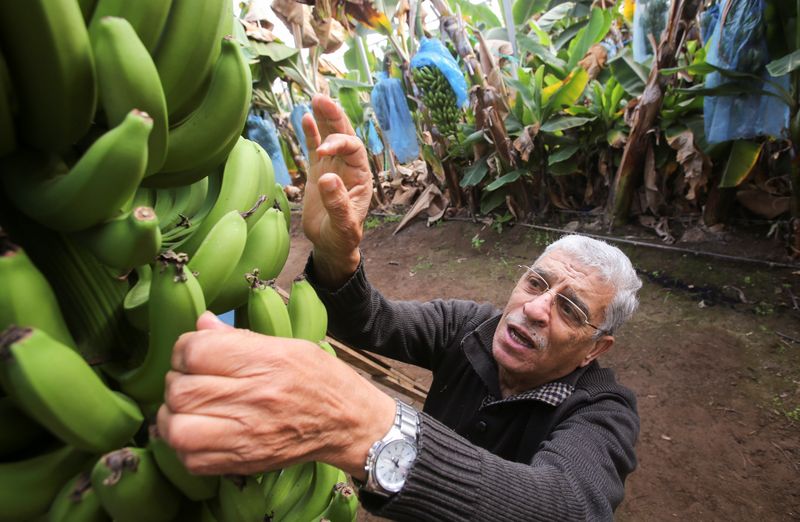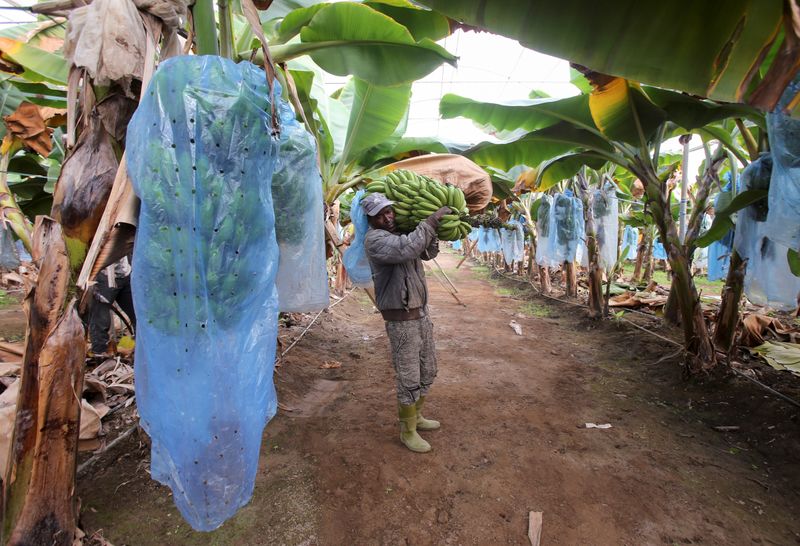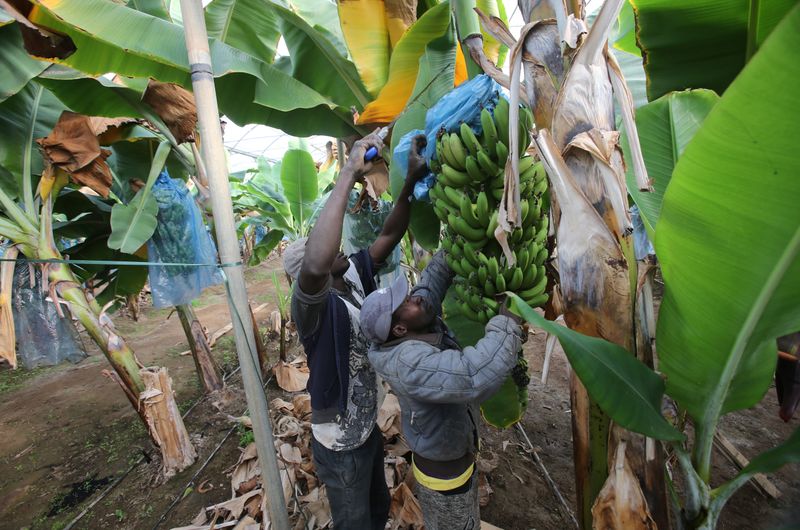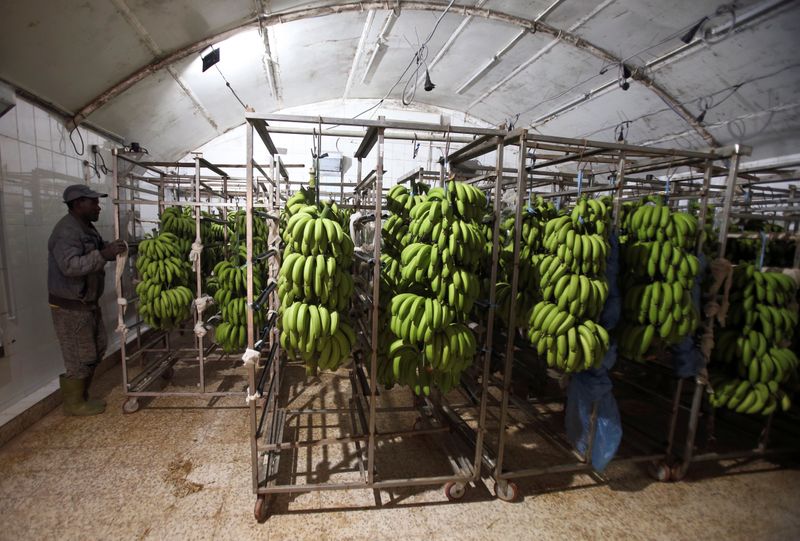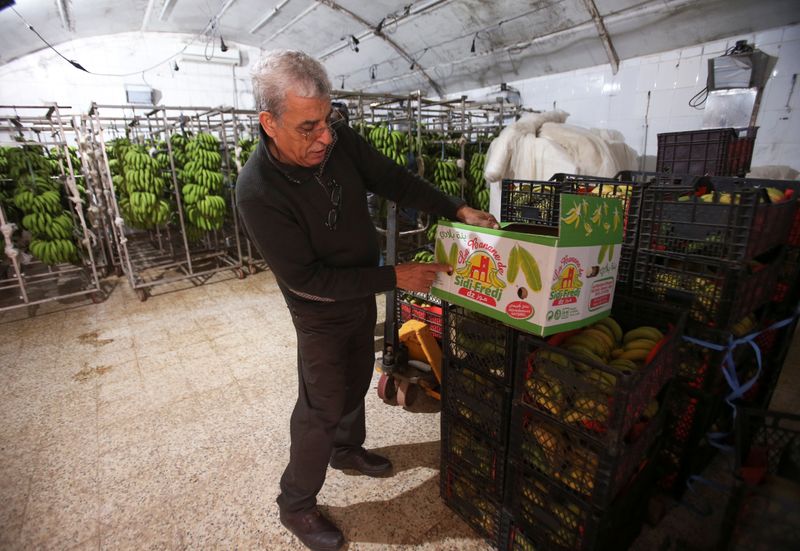SIDI FREDJ, Algeria (Reuters) – Faced with dwindling energy revenues and costlier imports, Algeria’s government is turning to farmers like Mostefa Mazouzi to help narrow its trade gap – so it’s lent him a hectare of land on condition he use it to grow bananas.
Mazouzi, who already owns a tomato farm, has built greenhouses and already harvested a banana crop on the new land near the Mediterranean coast.
While he won’t give figures, he says the venture is “very profitable”, and the government, reaping the benefits of early domestic plantings of a crop that cost $35 million to import in the first quarter of 2019, is happy too.
Mazouzi says bananas earn more for him than other crops because mostly imported fruit is more expensive. He plans to create an association for banana producers and wants the government to develop the crop more widely along the coast.
“Banana cultivation will help Algeria gain employment and wealth,” he said at his banana farm west of the capital, Algiers. “We are looking for investment support.”
For Algeria, an OPEC member that failed to develop its non-energy sectors before oil prices fell, the need to push the state-controlled economy to produce goods it currently buys abroad is growing ever more urgent.
INCENTIVES
Food imports, accounting for around 20% of Algeria’s purchases from abroad, totalled $8.07 billion in 2019, and the government has been providing loans at low interest rates for farmers to grow other crops too.
Agriculture Minister Abdelhamid Hamdani this week announced plans to cut that annual bill by at least $2.5 billion by boosting domestic output and rationing spending on purchases from abroad.
“It is imperative to modernise the (agricultural) sector and provide all facilities for farmers,” he told parliament.
In 2020, overall imports declined 18% to $34.4 billion as the coronavirus pandemic disrupted global trade, but the deficit still widened because export earnings dropped 33% to $23.8 billion.
That was mainly due to lower prices for crude oil and gas, which account for 94% of total export revenues and 60% of the state budget.
“The government should … move to other sectors, such as agriculture to avoid financial shocks caused by oil crises,” said Mustapha Djabane, head of the parliament agriculture committee.
Mazouzi believes that, if the government implements all promises made to farmers, the sector could end up helping out on both sides of the trade account – by first meeting domestic consumption and then generating supplementary production abroad.
“For bananas, our objective is to expand farmed areas to achieve self-sufficiency before moving to exports,” he said.
(Reporting by Hamid Ould Ahmed; editing by John Stonestreet)

